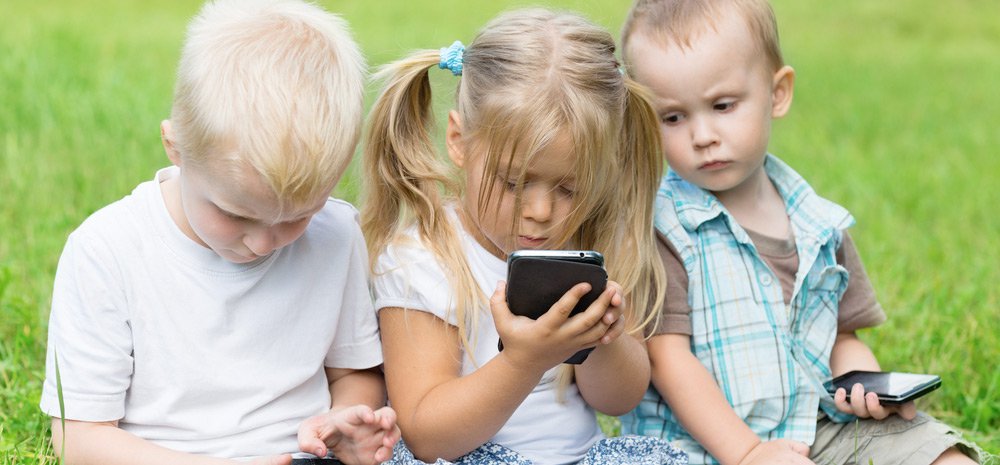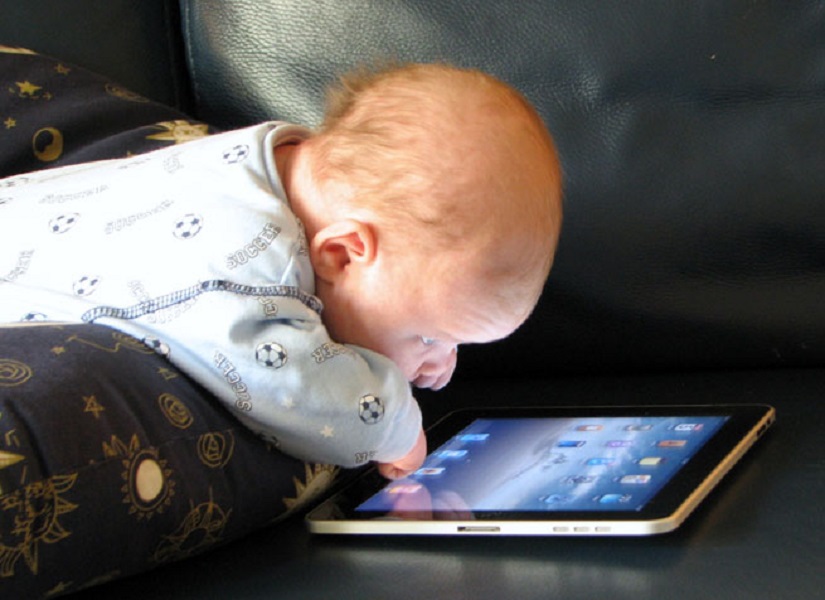Smartphones are becoming an ever-larger part of the lives of small children in Estonia – parents use the devices to entertain and educate the children, but also as a virtual nanny, as the first study of digital habits of toddlers in Estonia shows.
This article is published in collaboration with Research in Estonia. By Maia Klaassen
In 2014, the Tallinn University lecturer, Elyna Nevski, and a professor of media studies at the University of Tartu, Andra Siibak, carried out a questionnaire study among 400 parents whose children were three years old and under.
The results of the study showed that half of the families in Estonia allowed small children to use smart devices. Parents hand the smart devices to the children early in good faith that they will learn new skills or acquire new knowledge. Smartphones are used daily by one-third of the children under the age of three and tablets are used by a quarter of the children under the age of three.
Many the parents who allow their zero-to-three-year-old children to use smart devices, use it to attract the attention of the children in order to do something else at the same time – for example, clean or just rest for a moment. Children use the smart devices at home and also in the car.
Tots mainly use the smart devices for entertainment purposes, primarily for watching cartoons and videos. For example, “Masha and the Bear”, the “Talking Tom” game and Toca Boca apps were mentioned as the main favourites. With the help of their parents, zero-to-three-year-old small children can also look at photos and communicate via Skype or Facetime.
Do small children and smart devices go together?
Currently, there is no consensus between the researchers when it comes to the pros and cons of small children and the use of smart devices. Some media researchers believe that the applications support learning, and that touch screens contribute to playfulness and creativity. However, others say the early use of smart devices may:
influence the normal development of the brain;
hinder the creation of socialisation skills;
influence speech development;
cause behavioural problems;
decrease academic capability;
cause an irregular sleep regime.
Therefore, the American Academy of Pediatrics, for example, does not recommend children under the age of two to use smart devices at all.
The youngest members of the family imitate adults – the more screen time the parent has per day, the more they let the children to have it as well. The more positive parents are towards smartphones, the more likely they will allow children to use them as well.

There is nothing really bad about introducing a smartphone to a child, but in order for the smart devices to support the development of the child, it is necessary for the parents to instruct the children and give them feedback. It is important that the parents would also help choose an app or a game. This way, an age-appropriate and educational game can be chosen.
A dangerous trend
In the case of screen time for infants and toddlers, it is difficult to differentiate playful activities from educational ones. Applications meant for small children may be divided into three categories:
instructive applications that are based on imitation and repetition;
manipulative applications that have a certain game design and do not require the use of cognitive abilities;
constructive applications that let children to try a creative approach.
Although the parents offer educational content in their opinion, the study by Nevski and Siibak showed that, among the favourites, the number of apps with a developmental content was the smallest. Also, most of apps among the favourites were not meant for children so small.

A dangerous trend also emerged from the study conducted in Estonia: some of the parents are so mesmerised by the skill of their children to use a smart device that they think their children are smart enough to find enjoyable content themselves. However, small children use the imitation skill and cannot analyse the consumed content.
Parents can also be clueless
In families where parents have set a certain restriction on screen time, the children use smart devices more often. Half of the parents who let their children use smart devices said they ask questions and instruct the child when playing; the same number of parents also turn the attention of the child to what is happening on the screen. Feedbacking of activities and using the device together with the child were not so common.
The parents take instructing their children seriously and use several strategies when guiding the relationship of their children with smart devices. It became evident that many of the parents themselves needed prior instruction on which app is developmental and educational and when to just put the smart device away.
The study was published in the Early Years Journal.

